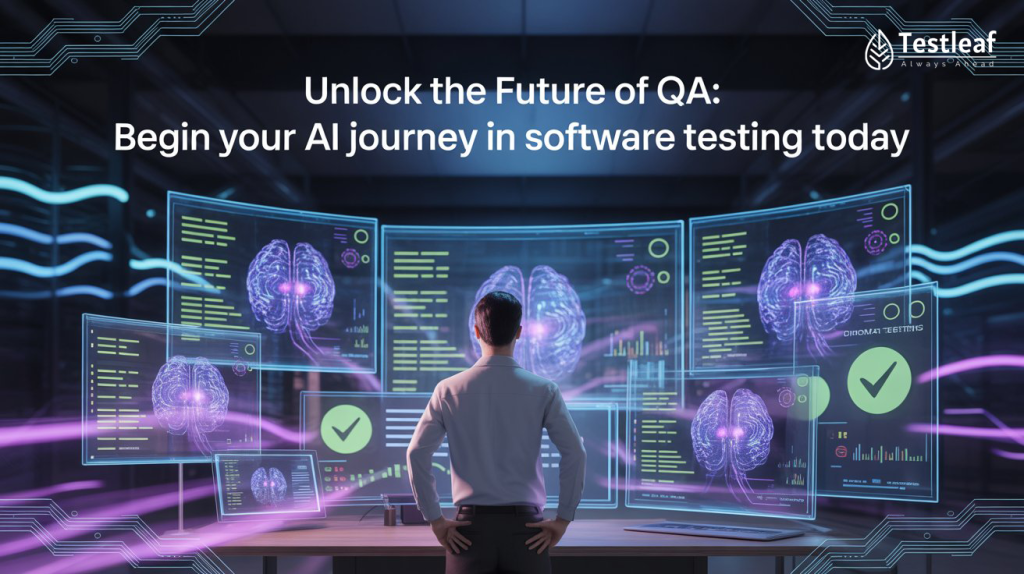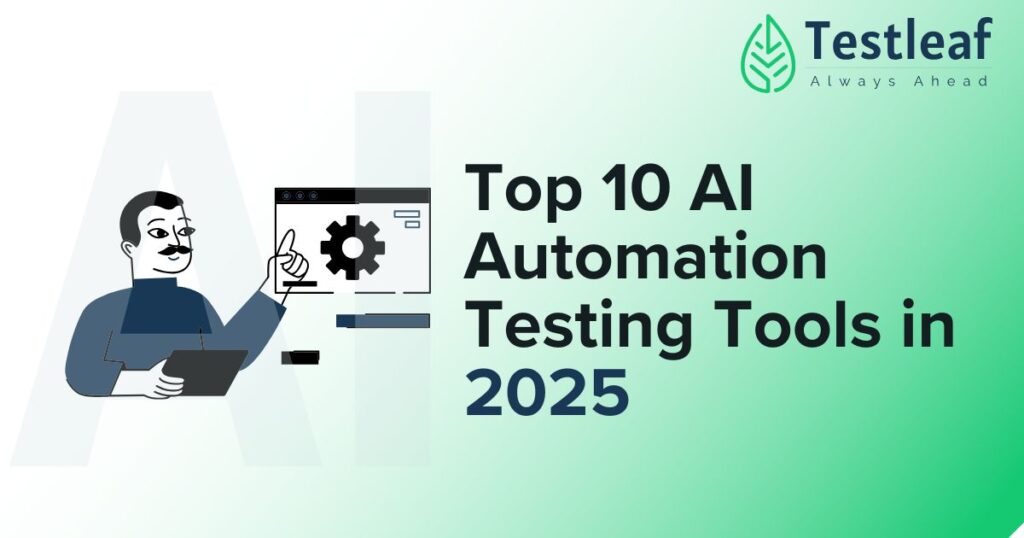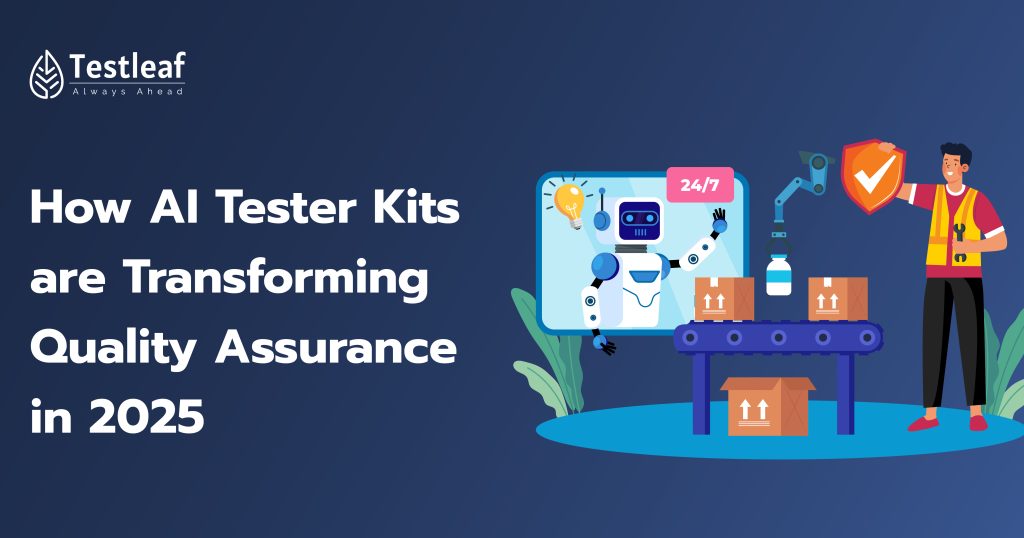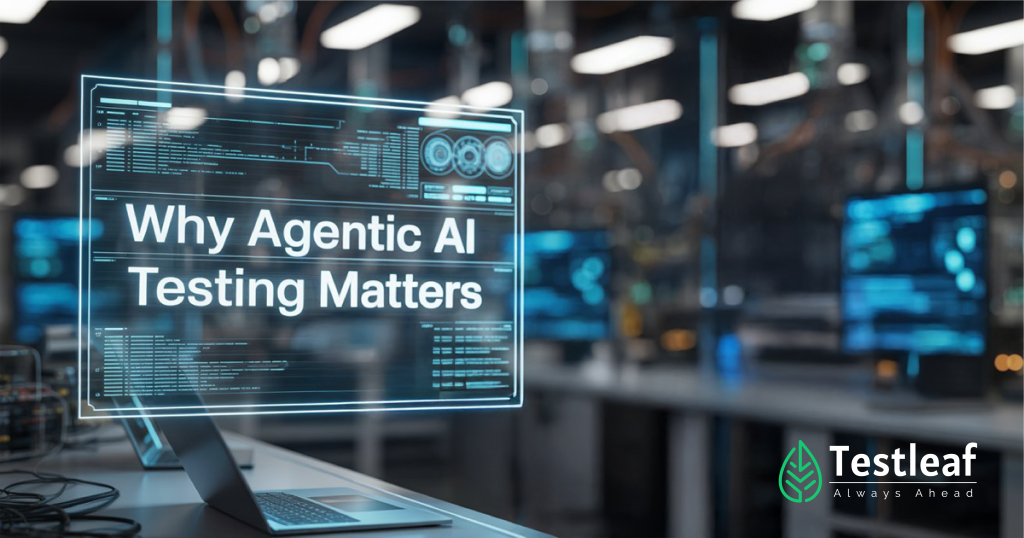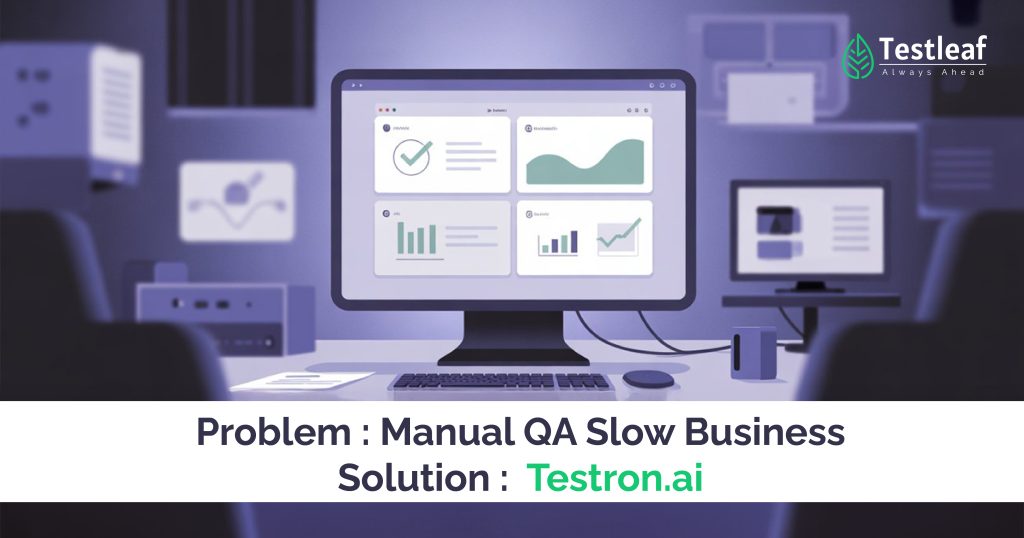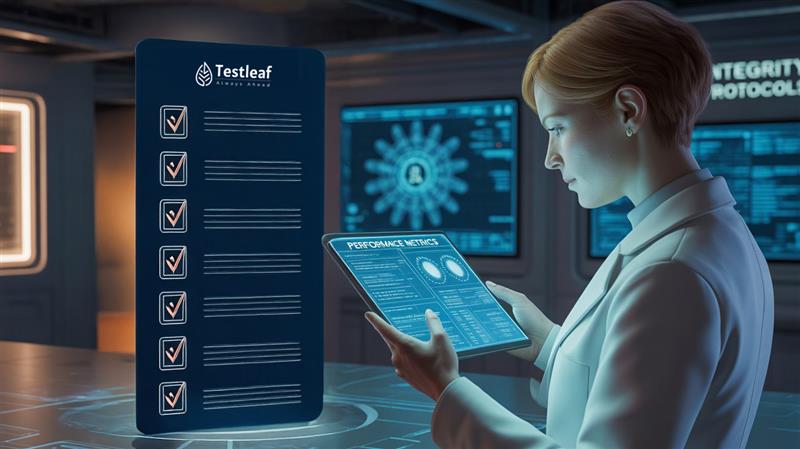The software industry is transforming at lightning speed, and Quality Assurance (QA) is no longer just about writing scripts or finding bugs. The future belongs to testers who understand Artificial Intelligence (AI) and how it can revolutionize testing. From predictive analytics to self-healing scripts, AI is changing the way QA teams operate, making testing faster, smarter, and more reliable.
If you’re a tester looking to future-proof your career, now is the time to embrace AI. Let’s explore how AI is reshaping QA, what skills you need, and how you can begin your journey toward becoming an AI-powered tester.
The Shift from Traditional Testing to Intelligent QA
Traditional testing methods depend heavily on human effort — from writing scripts to maintaining them. While these methods have served well for years, they struggle to keep pace with today’s Agile and DevOps pipelines. Rapid releases, frequent code changes, and complex applications demand a level of speed and accuracy that manual and even traditional automation can’t deliver.
This is where AI-powered testing steps in. With machine learning algorithms and natural language processing, AI can analyze large datasets, predict defects, and even generate test cases automatically. Instead of spending hours maintaining flaky scripts, testers can focus on high-value tasks like test strategy, exploratory testing, and continuous quality improvement.
Other Recommended Reads: selenium interview questions for 5 years experience
How AI Is Transforming Software Testing
Let’s look at how AI is creating real, measurable impact in QA environments:
1. Smart Test Case Generation
AI can analyze user behavior, past defects, and production logs to generate relevant test cases automatically. This ensures better coverage and reduces the risk of missing critical scenarios.
2. Self-Healing Test Scripts
One of the biggest challenges in automation is script maintenance. When UI elements change, scripts often fail. AI-based tools detect these changes automatically and repair scripts in real-time, drastically reducing downtime.
3. Predictive Defect Analysis
Machine learning models can predict potential defect areas by studying past bug data, helping QA teams focus on high-risk components before release.

4. Visual Testing Using AI
Traditional automation struggles to detect subtle UI issues. AI-driven visual validation tools compare baselines and detect layout shifts, broken elements, or pixel-level differences — tasks that are often missed by human eyes.
5. Natural Language Test Creation
AI enables testers to write test cases in plain English. These are then converted into executable scripts, making automation accessible even to those with limited programming experience.
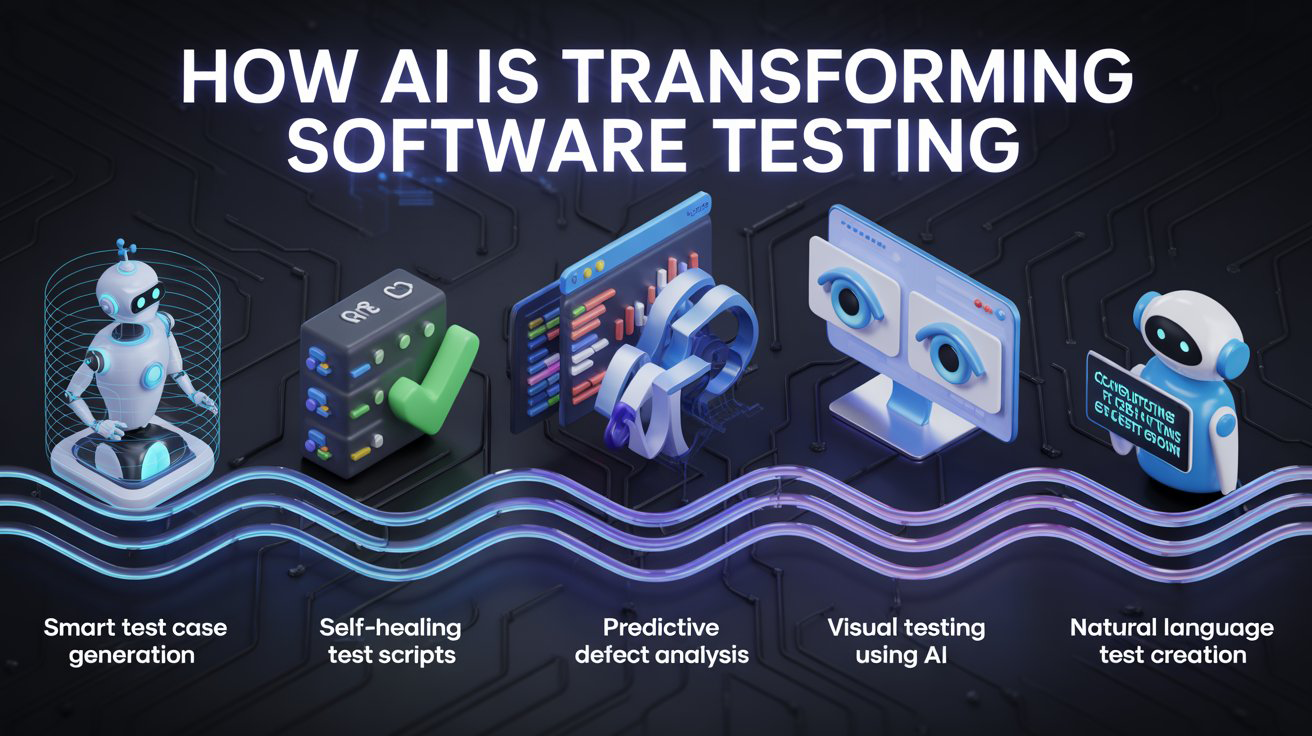
The New Role of QA Engineers in the AI Era
The role of a QA engineer is evolving rapidly. Testers are no longer just executors of scripts — they are now strategic contributors who work with data, models, and intelligent automation tools. In the AI-driven world, QA professionals must develop skills that blend testing expertise with AI understanding.
Here’s what the new-age QA engineer focuses on:
· Collaborating with data scientists to analyze defect trends.
· Leveraging AI tools to prioritize test cases based on impact.
· Using intelligent analytics dashboards for quality metrics.
· Integrating AI bots into CI/CD pipelines for real-time testing.
Other Useful Guides: api automation interview questions
Skills You Need to Get Started with AI in Testing
Transitioning to AI-based QA doesn’t mean you need to become a data scientist overnight. It means learning how to use AI as an enabler for better testing outcomes. Here are key skills to build:
1. Understanding AI & ML Fundamentals – Learn how algorithms like regression, classification, and clustering work in a testing context.
2. Data Handling and Analysis – Get comfortable working with datasets, defect logs, and test metrics to train and interpret models.
3. Automation Frameworks – Strengthen your knowledge of Selenium, Playwright, or Cypress — these are often integrated with AI tools.
4. AI Testing Tools – Explore tools like Testim, Applitools, Mabl, Functionize, and Testron.ai, which combine automation with intelligence.
5. Prompt Engineering & NLP Tools – Learn how to interact with AI tools using natural language and generate automated tests via prompts.

How to Begin Your AI Journey in QA
Starting your AI journey doesn’t have to be intimidating. Here’s a roadmap you can follow:
1. Start Small: Begin by exploring how AI is used in testing tools you already know.
2. Learn Through Projects: Apply AI concepts to simple automation problems, such as predicting flaky tests or generating test data.
3. Experiment with AI Tools: Use trial versions of AI testing platforms to understand how they work.
4. Collaborate and Share: Join QA communities focused on AI-driven testing. Discussions often reveal real-world use cases and learning paths.
5. Continuous Learning: Enroll in specialized courses that teach AI for QA, agentic testing, and AI test strategy design.
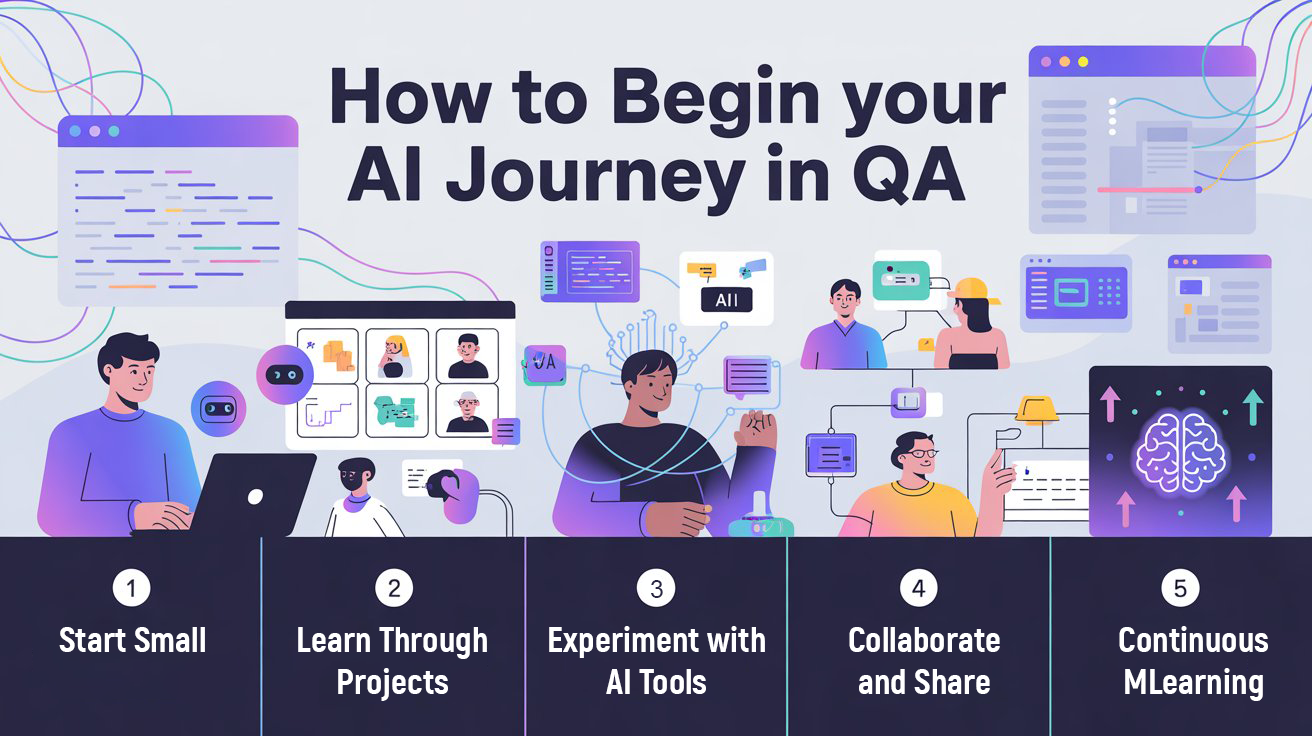
Why You Should Start Now
The future of software testing is AI-driven, and those who adopt early will stay ahead of the curve. According to industry trends, companies are already replacing traditional regression testing with AI-based automation to cut down time-to-market by nearly 40%.
By starting now, you’ll position yourself as an AI-enabled QA professional — a role that’s in high demand across tech-driven industries.
Conclusion
The world of QA is no longer about finding bugs; it’s about predicting and preventing them. As AI continues to reshape testing practices, learning how to leverage its power is the smartest move you can make for your career.
To stay relevant and future-ready, begin your learning journey today. Explore how AI for software testing can empower you to test smarter, faster, and with greater accuracy — because the future of QA starts with the choices you make now.
FAQs
1. Why is AI important in software testing?
AI improves accuracy, reduces repetitive tasks, and helps identify defects faster. It enables predictive analysis and self-healing scripts, making testing more intelligent and efficient.
2. What are the top AI tools for software testing?
Popular AI-powered tools include Testim, Applitools, Mabl, Functionize, and Testron.ai — all designed to automate and optimize the testing process with minimal manual effort.
3. Do testers need coding skills to start with AI in testing?
Not necessarily. Many AI tools support natural language test creation, allowing testers with minimal coding knowledge to automate effectively.
4. How can I start learning AI for QA?
Start by exploring online tutorials, experimenting with AI-enabled tools, and enrolling in courses focused on AI in software testing or agentic testing strategies.
5. What skills make a QA engineer future-ready in the AI era?
A future-ready QA engineer combines traditional testing expertise with AI, ML, and automation frameworks — focusing on data analysis, NLP, and intelligent testing workflows.
We Also Provide Training In:
- Advanced Selenium Training
- Playwright Training
- Gen AI Training
- AWS Training
- REST API Training
- Full Stack Training
- Appium Training
- DevOps Training
- JMeter Performance Training
Author’s Bio:

Content Writer at Testleaf, specializing in SEO-driven content for test automation, software development, and cybersecurity. I turn complex technical topics into clear, engaging stories that educate, inspire, and drive digital transformation.
Ezhirkadhir Raja
Content Writer – Testleaf
